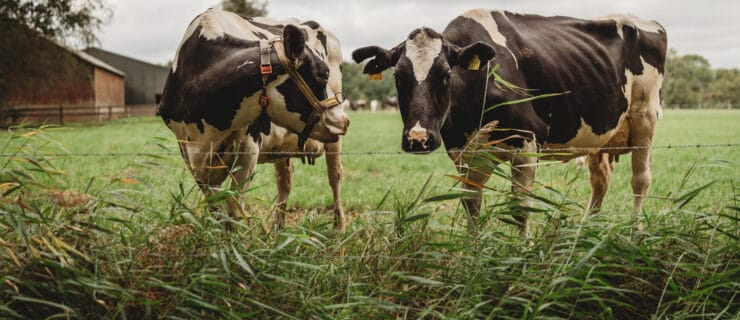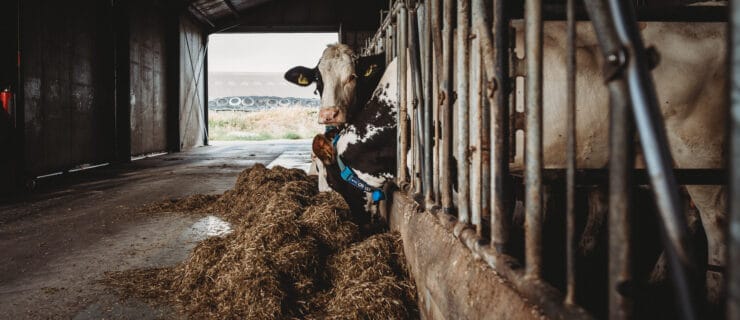Djessie Donkers is a Project expert Food Security & Health at ZLTO. He carries out projects for members and non-members in the ZLTO-area, particularly with regard to soil and fertilization. For example BodemUP, that 500 farmers participate in. Djessie discusses with the participating farmers what they are involved in already and what they could do to improve the soil. “For example honing the fertilization, other kinds of tillage, plowing or not or advising about green manure crop,” Djessie explains.
More toward the creation of added value by sharing data
In his work, the project expert makes regular use of data. “I always look how data regarding the plot, the farm or area can be made useful for the entrepreneur. For my advice, I use satellite data, yield maps, soil maps, drone images and information flows that I can come by from public documents or via the entrepreneur.”
Djessie experiences that, in general, entrepreneurs are increasingly more open to sharing data. More awareness is needed however, regarding what could happen to their data. “More and more often you hear that some data was hacked. Entrepreneurs are starting to become aware of this. If you, as a cattle breeder, were not even hacked yourself, but if, for example your dairy organization was hacked, your milk data will also be public. It is a good thing that there is more awareness. Ever since the CCPA, requesting data has been subjected to better security. Previously, a simple phone call to a supplier, indicating that the farmer agreed, would suffice. Nowadays that is impossible, which has contributed to the awareness around sharing data.”

“Data that we use remains the farmer’s property,” Djessie continues. In the context of nitrogen, fertilization is a thorny issue. “So if you are involved with fertilization or spreading manure, you have to be careful. With BodemUP (Lit.: BottomUP), we try to limit the nitrate scouring. So if good data is rendering, it’s all the more reason to share it.”
Djessie thinks it’s a good think that JoinData exists. “It is incomprehensible for a farmer what he is sharing and collecting in terms of data. It’s good to have an independent party that monitors this. You don’t want data to just end up with another party undesired. They could have a different interest. I often see that an entrepreneur shares his fertilization or accounting data with, for example, the purchaser of milk or potatoes. But those parties only require that once. The lines don’t have to be open all the time. In JoinData you can easily check some boxes when it comes to sharing data.”
Djessie expects the future of sharing to depend on what is required by the government. “Many farmers currently share things because they have to, for example, as ordered by the government or their dairy organization. But you want to get to a situation where a farmer shares something, because he gets something in return. For example carbon farmers that are paid for carbon credits. We must develop toward creating the added value of data sharing. Not sharing for the sake of sharing, but because it is useful.”



